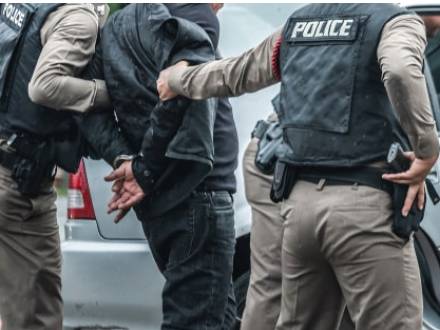Fruit of the Poisonous Tree: What It Means in a Criminal Case
 In the state of Wisconsin, not all evidence is created equal regarding criminal defense cases. In fact, when evidence is obtained illegally, there is a legal doctrine known as "fruit of the poisonous tree." This means that if law enforcement gathers evidence through illegal means or violates the defendant's constitutional rights during the evidence-gathering process, that evidence may be suppressed or excluded.
In the state of Wisconsin, not all evidence is created equal regarding criminal defense cases. In fact, when evidence is obtained illegally, there is a legal doctrine known as "fruit of the poisonous tree." This means that if law enforcement gathers evidence through illegal means or violates the defendant's constitutional rights during the evidence-gathering process, that evidence may be suppressed or excluded.
For example, suppose the police make an unlawful traffic stop and discover drugs. Since they had no probable cause (968.12 (3) 2(c)) to pull the driver over, the drugs may not be allowed in as evidence if the defense attorney can prove they are fruit of the poisonous tree, or the result of an illegal search.
If the drugs are not allowed in, there is no crime, and the charges must be dropped. If you believe there were serious errors or illegalities in your arrest, discuss the issue with a highly experienced Walworth County, WI criminal defense attorney. Understanding how the principle of fruit of the poisonous tree works can mean the difference between a conviction and a successful defense.
How Do Wisconsin Courts Intersect with Federal Courts Regarding the Fruit of the Poisonous Tree Doctrine?
The Wisconsin fruit of the poisonous tree doctrine is based on federal precedent, established by the U.S. Supreme Court, beginning with the 1914 case of Weeks v. United States. The metaphor "fruit of the poisonous tree" came about through the 1920 case of Silverthorne Lumber Co. v. United States.
The doctrine was extended to cover verbal evidence in the 1939 case of Nardone v. United States. This doctrine is a key element of the Exclusionary Rule. Although states must follow federal precedent, they can enact laws that provide more protections against illegally obtained evidence than federal law requires.
Common Scenarios Where the Fruit of the Poisonous Tree Doctrine Arises
While there are many different scenarios where the fruit of the poisonous tree doctrine could arise, the primary ones include:
- Warrantless searches
- Illegal traffic stops
- Unlawful arrests
- Unlawful interrogations
- GPS tracking or phone surveillance without proper authorization
Are There Exceptions to the Doctrine?
There are exceptions to the fruit of the poisonous tree doctrine. The independent discovery rule permits the admission of evidence that was illegally obtained in court if it is later obtained through a lawful, separate, and independent source. The inevitable discovery rule is another exception that allows illegally obtained evidence to be introduced if the prosecutor can demonstrate that the evidence would have been inevitably discovered through lawful means.
The attenuation doctrine also allows evidence obtained from an illegal police action if the connection between the illegal action and the evidence is determined to be weak, or "attenuated." This means that even illegally obtained evidence could be admissible if the link between the illegal police action and the evidence is not a direct consequence.
When the police rely on a statute, warrant, or other legal authority that is later found to be invalid, there may be an exception to the exclusionary rule based on the idea that the officers were acting in good faith. This is known as the good faith exception.
Contact a Milwaukee County, WI Criminal Defense Lawyer
You should speak with an Ozaukee County, WI criminal defense attorney from Bucher Law Group, LLC as soon as possible after your arrest. The sooner your attorney can begin looking at the evidence the prosecution has against you, the sooner a comprehensive defense, including the exclusion of any illegally obtained evidence, can occur.
Attorney Bucher spent two decades as the Waukesha County District Attorney and served on dozens of state-wide task forces on violent crimes. This gives him a unique perspective that significantly benefits his clients as he litigates some of the highest-profile, complex cases in the state. To schedule your free consultation, call 262-446-9222.














 262-446-9222
262-446-9222 262-446-9885
262-446-9885






